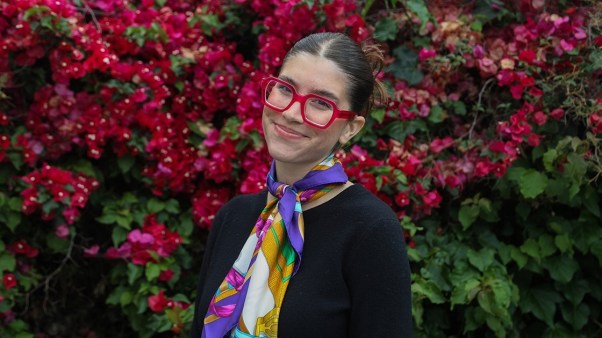As a non-black person, the death of Eric Garner was shocking and deeply troubling to me. I could barely bring myself to watch the video of his harrowing arrest, knowing that his shouts of “I can’t breathe!” would be his last. I can't believe that no one will bear any responsibility for his death, as if he had died peacefully on his bed, surrounded by his family and loved ones.
That was how he should have died.
Yet I must confess that part of the reason I am so outraged by his death is that I have lived in ignorance of black oppression for so long. My outrage is intense because it is relatively fresh; for those in the black community, this is a personal reality that they have endured for centuries. So while it is tempting for me to feel self-righteous indignation about Eric Garner’s death, I must also repent that I have not paid enough attention to the traumatic experience of African Americans simply because it was not my immediate or personal reality.
My outrage is intense because it is relatively fresh; for those in the black community, this is a personal reality that they have endured for centuries.
As such, I have struggled as to how I can come alongside my African American brothers and sisters in a way that is biblical and affirming but not condescending, to be a true friend but not a rescuer. To others who feel the same, I would suggest that the incarnation of Jesus provides a wonderful model of how nonblack people can stand as allies to our African American family in Christ.
As my friend Rich Villodas explained last week, we often think of Jesus' incarnation as an integral part of the story of salvation, and indeed it is. But the incarnation is not only the story of how Jesus becomes our Savior, but also describes what kind of Savior he is to us: a personal one. The book of Hebrews describes three ways in which the incarnation allows Jesus to relate to us in a more personal way.
First, Jesus is able to understand and empathize with us because he was tempted in the same ways we were (4:15). Second, this familiarity with the human condition does not result in Jesus despising our weaknesses and standing in judgment of us. Instead, he stands with and for us as our Great High Priest, allowing us to approach the throne of grace with confidence (4:14, 16). Finally, Hebrews 2:10-11 says that the suffering Jesus experienced not only perfected him but binds us to him as family, and that he unashamedly calls us his brothers and sisters. How amazing that Jesus approaches each of us in this way, understanding us and standing for us, even calling us his family!
But the incarnation is not only Jesus’ approach to us, but the approach we should take with one another. That is why Paul writes this in Philippians 2:5-8:
In your relationships with one another, have the same mindset as Christ Jesus:
Who, being in very nature God, did not consider equality with God something to be used to his own advantage; rather, he made himself nothing by taking the very nature of a servant, being made in human likeness. And being found in appearance as a man, he humbled himself by becoming obedient to death— even death on a cross!
The incarnation then is not only a description of Jesus’ ministry but a prescription to the church. It is an attitude that we should strive to demonstrate towards all people at all times, but especially to our African American brothers and sisters in this time of great tragedy and crisis. Our approach should not be like that of the world, shaking our heads sadly while keeping ourselves at arm’s length, all while offering our inexpert opinions. No, our mentality should be exactly the same as Christ. We should come alongside our African American brothers and sisters and understand their experiences and their pain, as Christ did for us. We should stand up not in judgment but as allies and intercessors, as Christ did for us. And lastly, we should unashamedly affirm that they are our family, and that we will regard and defend them as such, as Christ did for us.
The incarnation is an attitude that we should strive to demonstrate towards all people, but especially to our African American brothers and sisters in this time of great tragedy and crisis.
The church that I pastor, Rainier Avenue Church, attempted to do exactly this on Sunday. One of our leaders, a black woman, came up and shared what it is like to be the mother of a black son. She spoke of the conflict she faces as a parent, how she wants to raise her son as a confident and fearless man of God, and yet knows that she must also someday prepare him for the realities and inequalities that he faces in this country. She shared how she fears not just the direct violence that he might experience, but the violence done to his soul; that he might be slowly stifled by the insidious and inescapable sense that black lives are of less worth than others.
As she shared her heart, our congregation could see that the story of black pain is not just a news story but a personal one, the daily reality of many dear friends who occupied the seats next to us. As a church, we stood and encircled our African-American brothers and sisters in prayer, affirming that their lives matter because all lives matter. We stood as a hedge of protection for them but also stood in repentance, acknowledging that many of us have been complicit in this by failing to acknowledge their deep pain adequately. And we stood not as saviors but as family, bonded together by nothing less than the powerful blood of Christ. But we stood because Christ stood up for each one of us.
As powerful as this moment was for many of us, it was not perfect, and does not signal the end of a process but only the beginning of one. Our church still has far to go in terms of racial reconciliation, as do I as a pastor. But what is encouraging is that steps like these are nothing less than a direct imitation of the incarnation of Jesus. When it comes to the work of reconciliation and healing, we are not innovators but imitators. We already have a perfect model in the life of Christ. All we need to do then is to have the courage and the compassion to cleave to the example that Jesus has already shown us.









